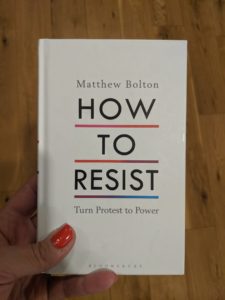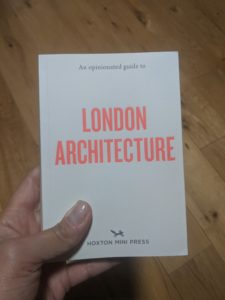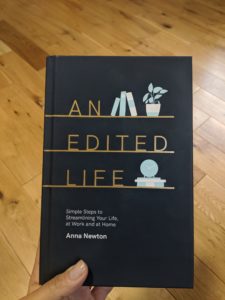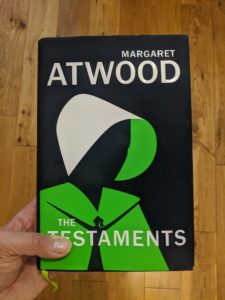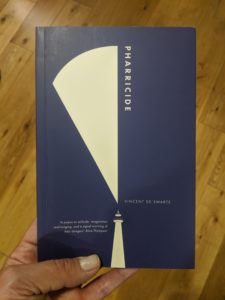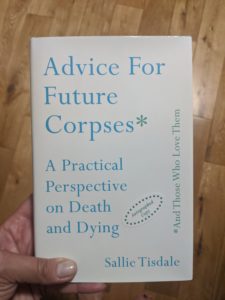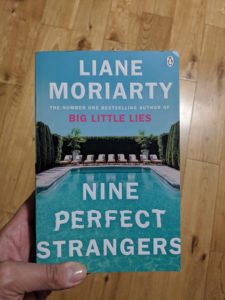 Five Stars
Five Stars
Best for:
I wish everyone would read this. Parents who don’t understand why people would choose to not be parents can learn a lot about society’s misconceptions, but us childfree folks really benefit from writing that treats us as well-adjusted adults, not selfish, juvenile misanthropes.
In a nutshell:
Sociologist Blackstone looks at what it means to choose a life without children of one’s own.
Worth quoting:
I underlined something on nearly every page, and starred something especially poignant probably every three or four pages. But here are some of my favorites.
Regarding trying to get sterilized: “To feel so unheard for so many years, to be treated like a child who doesn’t know her own mind, and to be doubted by the very people who should be your advocates is demoralizing and exhausting.”
On the fact that there isn’t any evidence for such a thing as a ‘maternal instinct’: “It is much more comfortable, and comforting to others, to joke about one’s individual lack of maternal instinct than it is to suggest that it doesn’t exist.”
Discussing the definition of family: “Google the phrase ‘start a family’ and you’ll quickly discover that for many people, even today, families don’t begin until children enter the picture. This is not lost on the childfree.”
“No, we don’t all hate kids but neither should we have to justify our choice not to have them with lengthy proclamations about how much we adore them.”
Why I chose it:
I am childfree (and only met my spouse because we both selected ‘Does not want kids’ in our OK Cupid profiles) and have spent a ton of time thinking through this topic. I’m even working on a book that explores how relationships between parents and non-parents change once kids enter the picture. When I saw this book in the shop I damn near bought all the copies. Thankfully it lived up to and exceeded by expectations.
Review:
I could write a review of this book that is nearly as long as the introduction to it. Let me just say, up front, that Blackstone is both a thorough researcher AND a great writer, which keeps what could have been a dry book entertaining and interesting.
Blackstone starts the book in a place one might not expect — by acknowledging that while parenthood (and especially motherhood) is revered in US culture, there are specific groups of people who have traditionally been discouraged from having children. Basically, white middle- and upper-class women are pushed to reproduce, while people of color are judged for having children (especially more than just one or two) and experienced a history of having their reproductive rights challenged through things like forced sterilization. It’s good to center this discussion there.
She looks at pronatalism’s impact on our views of women and how by promoting the essentialness of motherhood to being a women, society then leads us to internalize the idea that women who aren’t mothers aren’t real women. This then has an effect on nearly everything, from how people are wary of women who don’t have kids to the benefits that are available to parents (such as the flexibility to leave work early to pick up a sick kid) but not non-parents (such as the flexibility to leave work early to take an ill pet to the vet). It extends to how we define family (something that really pisses me off) as only existing when a child and a parent are involved — to many people, my husband and I aren’t a family and I guess never will be since kids are not in our future.
She also focuses a lot of time on why people might make the choice not to have children, and how society views us as selfish. She compares how parents come to their own decision to have children, and points out those reasons are often just as ‘selfish,’ and concludes that we should just take that word out of rotation in this area because it serves no purpose. And of course threaded throughout is evidence of how parents and society as a whole are generally wary of non-parents and a bit judgmental about us.
Really the only area she doesn’t spent a lot of time on is how people without children can lose their friends as they become parents and their time and priorities shift, though her partner address this anecdotally in the afterword, which is written by him.
I loved this book because it made me feel seen and understood. I don’t have a ‘reason’ for not wanting children other than that I don’t want to be a parent. Much like I don’t want to be a surgeon. There’s nothing wrong with being a surgeon, and I agree society needs some, but it’s obviously not right for everyone. I wish people who look at me like I’m deficient or broken would instead realize that just as they CHOSE parenthood, I’ve CHOSEN a life without my own kids. It’s a weird feeling to know that up to three quarters of my life won’t match most of what my friends experience; this book helped me feel less alone in that.
Keep it / Pass to a Friend / Donate it / Toss it:
Keep it but also buy copies for people.
